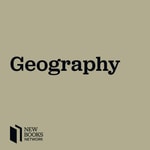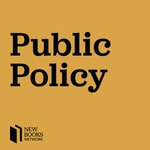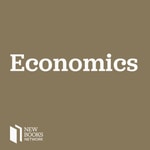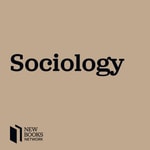New Books in Geography – Details, episodes & analysis
Podcast details
Technical and general information from the podcast's RSS feed.

New Books in Geography
Marshall Poe
Frequency: 1 episode/11d. Total Eps: 580

Recent rankings
Latest chart positions across Apple Podcasts and Spotify rankings.
Apple Podcasts
🇬🇧 Great Britain - socialSciences
27/07/2025#76🇨🇦 Canada - socialSciences
21/07/2025#96🇨🇦 Canada - socialSciences
20/07/2025#90🇨🇦 Canada - socialSciences
19/07/2025#79🇨🇦 Canada - socialSciences
18/07/2025#61🇨🇦 Canada - socialSciences
17/07/2025#38🇬🇧 Great Britain - socialSciences
14/07/2025#71🇬🇧 Great Britain - socialSciences
13/07/2025#45🇬🇧 Great Britain - socialSciences
05/07/2025#93🇬🇧 Great Britain - socialSciences
04/07/2025#80
Spotify
No recent rankings available
Shared links between episodes and podcasts
Links found in episode descriptions and other podcasts that share them.
See allRSS feed quality and score
Technical evaluation of the podcast's RSS feed quality and structure.
See allScore global : 53%
Publication history
Monthly episode publishing history over the past years.
Amir Alexander, "Liberty's Grid: A Founding Father, a Mathematical Dreamland, and the Shaping of America" (U Chicago Press, 2024)
Episode 275
samedi 21 septembre 2024 • Duration 01:00:11
David Kroening Seitz, "A Different Trek: Radical Geographies of Deep Space Nine" (U Nebraska Press, 2023)
Episode 196
vendredi 20 septembre 2024 • Duration 59:20
Laura Zurowski et al., "City Steps of Pittsburgh: A History & Guide" (History Press, 2024)
Episode 114
jeudi 8 août 2024 • Duration 41:27
Of Peninsulas and Archipelagos: The Landscape of Translation in Southeast Asia
Episode 193
vendredi 11 août 2023 • Duration 34:06
Cindy McCulligh, "Sewer of Progress: Corporations, Institutionalized Corruption, and the Struggle for the Santiago River" (MIT Press, 2023)
Episode 192
dimanche 6 août 2023 • Duration 01:00:58
Alejandro Portes and Ariel C. Armony, "Emerging Global Cities: Origin, Structure, and Significance" (Columbia UP, 2022)
Episode 75
samedi 5 août 2023 • Duration 01:00:08
Logistic Clusters: Delivering Value and Driving Growth
Episode 137
jeudi 3 août 2023 • Duration 15:45
Omolade Adunbi, "Enclaves of Exception: Special Economic Zones and Extractive Practices in Nigeria" (Indiana UP, 2022)
Episode 97
lundi 31 juillet 2023 • Duration 41:53
Erica Abrams Locklear, "Appalachia on the Table: Representing Mountain Food and People" (U Georgia Press, 2023)
Episode 125
vendredi 28 juillet 2023 • Duration 54:32
Miya Qiong Xie, "Territorializing Manchuria: The Transnational Frontier and Literatures of East Asia" (Harvard UP, 2023)
Episode 500
vendredi 28 juillet 2023 • Duration 55:57









